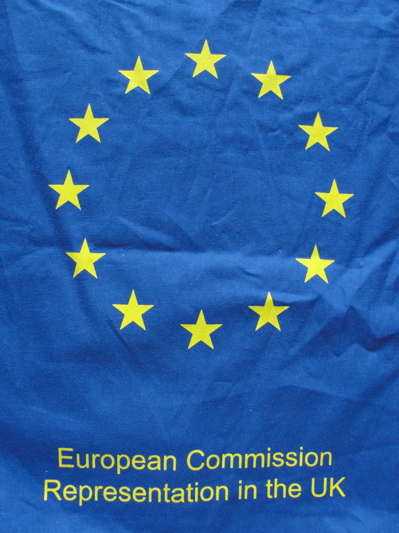
Britain is noted for its EU-antipathy. After having observed that one currency will get them round most of the places they want to see, but not here, Bookpacking is often asked by American tourists: “So why aren’t you guys in the Euro?”
The nation that brought the world the pathetically parochial headline “Up Yours Delors” worries that one day the Germans will run our country by Brussels proxy; and that – while the trains would definitely improve – our metric bananas will be subject to rigid curvature controls by the Strasbourg super-state.
But Bookpacking, while acknowledging mission-creep, a subtle erosion of sovereignty and millions lost in corruption, is very much pro-EU when the big picture is taken into account. Ignorance breeds fear, and fear fosters aggression. And so, spying various justificatory EU flyers on a stand promoting “Languages Day” at London’s Victoria station, I took a few to read on a long coach journey north.
Skimming the explanatory paragraphs about the importance of representation, then moving on to examples of the EU flexing its regulatory muscle to clobber cartels and push down prices (as if mobile telephony really does cost three times more abroad), I wondered if beneficiaries in other countries needed to be reminded of the EU’s good works on behalf of the continent’s consumers? Or was this pamphlet just for the recalcitrant Brits?
Perhaps it wasn’t just us, but perhaps it was for all net donors (as opposed to net recipients)? After all, if the EU is rebuilding your roads, the daily sight of those “This project funded by…” signs would be enough to confirm your faith in membership of this burgeoning club.
As the EU expands ever eastwards and becomes a regular fixture of many more lives, it could claim – though it faces the hard task of proving a negative – to have achieved its initial objective. Formed initially as the European Steel and Coal Community, with the aim of political harmony through economic integration and a little redistribution of wealth, the impetus for the EU came from the idea that countries in Western Europe ought never to fight each other again.
Fretting over federalism a half-century later, as we flit quickly through border posts with EHIC cards that guarantee medical treatment across the European community – at the same time as the world’s ‘hyperpower’ makes another stifled attempt at universal healthcare – we’d do well to remember the unprecedented period of peace and prosperity we’ve enjoyed since the end of WW2. “Never again,” they said, Suddenly, the shape of those bananas doesn’t seem so important.
Leave a comment